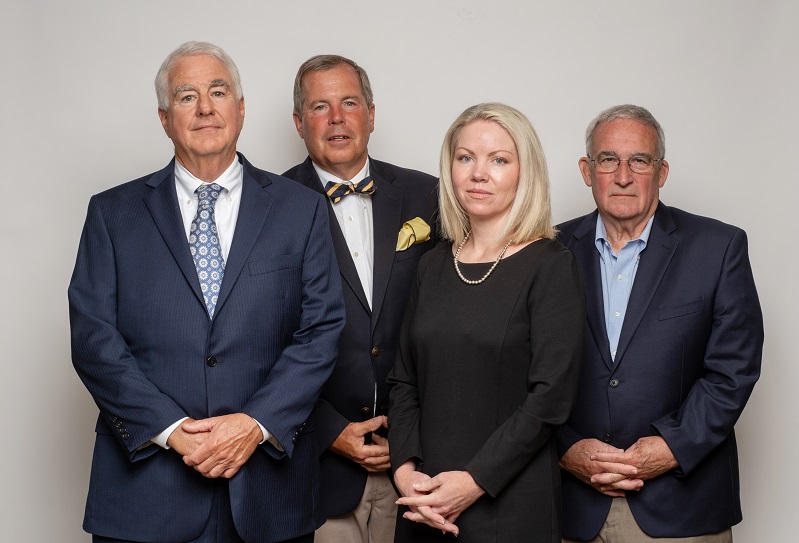Veteran healthcare leaders aim to bridge medical care gaps with new company
August 1, 2023
For the past three years, a group of skilled former medical care leaders have heard almost weekly stories from friends, neighbors and former co-workers about their dissatisfaction with the state of healthcare in South Carolina.
Whether it be complaints about wait times to see a specialist; requests to help interpret test results received via email or advice on managing burnout and fatigue, these stories resonated with this group.
They began to research what was causing this malaise, and realized it wasn’t the system in place, but the lack of connectivity between the various cogs in the medical care wheel.
Using their 150 years of combined leadership in creating healthcare solutions for South Carolina citizens, coupled with having gained new perspectives working on different ventures, they have formed a company with the goal of creating guideways for a stronger medical care environment across the country.
Integral Leaders in Health is a public benefit corporation, which is a for-profit corporation intended to support the betterment of communities at large and operate in a responsible and sustainable manner. The group plans to start by addressing the current healthcare crisis in South Carolina – progressive replacement of patient well-being as the primary purpose of the medical care environment. Their goal is to focus on medical care, which goes beyond access and quality of healthcare and squarely looks at balancing the patient-doctor relationship.
“We are fortunate to live in a state with great doctors, hospitals and universities. But the medical care environment, in which they each play an important role, has become unbalanced,” said Dr. Spence Taylor, the founder and CEO of Integral Leaders in Health. “Our mission is to balance all of the components of medical care so everyone is supported and patient well-being is the priority.”
Integral Leaders in Health brings together a diverse group of experienced medical and governmental affairs experts.
Taylor was the first physician to be named president of the Greenville Health System (GHS, now part of Prisma Health), a health system, which at the time, had nearly $3 billion in annual operating revenue, eight hospitals, 1,600 beds, 2,000 employed providers, 16,000 employees and an emerging academic health center.
The leadership team includes Dr. Jerry Youkey, the Founding Dean Emeritus of the University of South Carolina School of Medicine Greenville, prior USC Associate Provost for Health Sciences – Greenville, and previous GHS Executive Vice President; Cortney Easterling, Deputy Chief of Staff at GHS where she provided strategic counsel on message development, leadership engagement, executive and board communications, and community outreach to the president; and Howell Clyborne, who was Vice President of Community and Government Affairs and Chief of Staff for GHS, a former president of the Greenville Health Authority and was Director of the Office of Revenue and Fiscal Affairs for the State of South Carolina.
Many of the stories they have heard in the past few years share common threads, Youkey said. People don’t feel connected in the medical care world. The once altruistic profession of healing the sick because it was the right thing to do has transformed into a completely corporate structure and purpose. People show up at a clinic and meet with a virtual doctor. Their results are texted to them by a machine. The focus is on third party metrics as opposed to what is best for the individual patient.
“The airline industry model has become the healthcare model,” Youkey said. “People are treated like commodities to be moved around.”
The use of the word “integral” in the company name is key, Clyborne said. Almost 20% of the nation’s gross domestic product is committed to healthcare, yet patient and doctor dissatisfaction is more than 70%,” according to a June Harris Poll.
“We plan to use our experience to create real integral’ solutions,” Clyborne said. “We are leveraging our abilities and skills to help the system work for everyone.”
Integral Leaders in Health will be working with companies, governmental agencies and associations across the healthcare spectrum with a focus on creating ways to improve the medical care environment, Easterling said.
Services include:
- Training Seminars: They can coach leadership and management teams on the best way to navigate the changing medical care environment. Integral Leaders in Health’s team has authored hundreds of articles on leadership and done thousands of hours of training.
- Speaking Engagements: With more than 150 years combined experience, Integral Leaders in Health can energize, educate and unify any leadership team. They can share real examples and answers to problems in the world of medical care as they have done nationally as guest lecturers and keynote speakers.
- Strategy Solutions: They can create roadmaps to eliminate bureaucratic mandates and red tape by tapping into their decades of experience at all levels of South Carolina government. They will help find ways to promote efficiency to make sure patients and staff don’t feel like cogs in a machine.
- Connections: They create results when it comes to building bridges between disciplines by providing access and expertise on governmental relations.
- Communications: They can coordinate messaging and materials to help create support for medical care changes and initiatives by using the knowledge they have developed on hundreds of campaigns both large and small.
“It’s time to restore patient well-being by achieving shared goals developed by those who need to be making medical decisions — patients and doctors,” Taylor said.
About Integral Leaders in Health
Integral Leaders in Health’s mission aims to revolutionize medical care into a balanced environment that meets the needs of the individual patient by focusing on their outcomes. They can educate, inform and catalyze measurable change through targeted strategic campaigns. Learn more at www.integralleadersinhealth.com



















